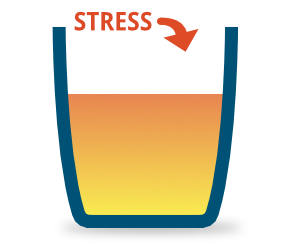Mental health and wellbeing: Newsletter October 2022
Vicki Brown and Matthew Barks recently trained as mental health first aiders. Matthew has put together this article to share experiences and begin raising some of the issues to start a wider conversation about mental ill health
One in four people (25%) will experience mental ill health at some point in their lives.
It is important to do more to encourage mental wellness in ourselves and those around us by breaking the stigmas attached to it, and challenge us all to treat mental health as equal to physical health.
Every one of us has mental health.
Good mental health starts with looking after yourself
It took a long time to openly talk to my friends and family and say that I experience mental ill health. For me, the isolation of the job I do made it very hard to discuss what I was feeling with others for so long.
Becoming a mental health first aider challenged me to believe that talking about what we feel is one of the best ways to make a change. My hope is by sharing my experience it might help start similar conversations which will, in turn, bolster the support network we need in our line of work.
Caring for myself is not self-indulgence, it is self-preservation
Audrey Lorde
(writer, feminist, professor, and civil rights activist)
Stress and tips on how to manage it
We all face stress every day, but when these stresses start to impact our everyday life, it can become a problem. Unchecked, stress can build up and impact our physical and mental health. It is important to monitor and manage stress levels by reflecting on what triggers stress in work and home life.
 Think of your capacity to deal with stress as a container. Now think about the stresses you currently have, and place them inside that imaginary container. Is it close to capacity?
Think of your capacity to deal with stress as a container. Now think about the stresses you currently have, and place them inside that imaginary container. Is it close to capacity?
Ask yourself a few questions about this stress:
- What parts of your life are causing you stress? Is the level of stress above what you might think is appropriate or normal?
- Can you make any changes to reduce the amount of stress? Is there anything that needs particularly urgent attention?- What can you not currently change?
- Can anyone help you?
 The way we cope with stress determines how quickly the container can empty, and how much capacity we have at any given moment. Think about this like a tap at the bottom that once turned helps reduce the overall stress we are feeling.
The way we cope with stress determines how quickly the container can empty, and how much capacity we have at any given moment. Think about this like a tap at the bottom that once turned helps reduce the overall stress we are feeling.
These questions will help you work out helpful coping strategies – the turning of the tap – which will help lower the amount of stress in the container.
Helpful coping strategies
Whilst not an exhaustive list, ask yourself how often you react to your stress with these examples of helpful coping strategies:
- Taking time for breaks in your working day
Meeting and socialising with friends and family
Keeping hydrated and eating healthily
Engage in mindful relaxation such as meditation
Switching off from work at a sensible time
Seeking advice from work colleagues about stressful situations
Talking to friends and family about your stress levels
Setting up office hours and not working outside them
Allowing time in your day for your own hobbies and activities
Allowing yourself time to relax and unwind
Getting a good amount of sleep
Exercising
Spending time outside
Knowing your work limit and not taking on more work
Unhelpful coping strategies
 Some coping strategies may only temporarily alleviate the feelings of stress we have and can be damaging to ourselves and others around us.
Some coping strategies may only temporarily alleviate the feelings of stress we have and can be damaging to ourselves and others around us.
Whilst not an exhaustive list, ask yourself how often you react to your stress with these examples of unhelpful coping strategies:
- Drinking excessive amounts of tea and coffee
Taking on more work than you can consistently deliver well
Bottle-up your feelings and hope they will go away
Yell at someone/kick or throw something
Being critical if perfection is not achieved all day every day
Working too many hours and not giving yourself time to rest
Putting work above social activities
Withdraw from hobbies and friends
Put off work deadlines
Drink excessive amounts of alcohol
Smoke or take non-prescribed drugs
Bite your fingernails
Overeat/undereat
Spend too much time on social media
Reflection
Reflect on how you deal with your stress, if you find yourself with more unhelpful than helpful responses to stress, it may be time for you to take the first steps in talking to someone about it.
Give yourself your “golden time” – time put aside every day dedicated purely to a pursuit that is guaranteed to lift your mood (for me, it's computer games, but it’ll be different for us all!).
Our work demands we give a lot of ourselves to other people, so we need to remember to give time for ourselves.